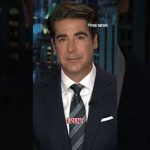ABC’s decision to reinstate Jimmy Kimmel’s late-night show after an indefinite suspension is a stark example of corporate damage control in action. The Walt Disney Company announced the reversal after internal discussions with Kimmel and what it described as “thoughtful conversations,” moving to return the program to the air within days of pulling it.
The suspension followed a Kimmel monologue that criticized the political exploitation of the fatal shooting of conservative activist Charlie Kirk, remarks that sparked immediate outrage and were labeled “offensive and insensitive” by network spokespeople. ABC initially halted production on the program while the controversy intensified, a move that left many asking whether comedy or politics had become an impossible tightrope.
Major affiliate groups reacted by pulling the show from their stations, with Nexstar and Sinclair among those announcing they would not air the program while the dispute played out. The affiliate blackouts, combined with public calls from regulators and commentators, showed how quickly broadcast partners can weaponize distribution to punish content they dislike.
Hollywood’s response was immediate and predictable: hundreds of entertainers signed an open letter framed as a defense of free speech, and civil liberties groups rushed to the stage to denounce the suspension. That pressure — from inside the industry and from a vocal slice of the talent class — helped tilt the calculation back toward reinstatement, proving that celebrity influence still carries weight at corporate headquarters.
This episode exposed the corporate calculus that too often governs media decisions: fear of regulatory scrutiny, the peril of losing lucrative affiliate and carriage deals, and the instinct to placate whichever side screams loudest. Conservatives have every reason to question whether networks are applying standards evenhandedly or simply shielding themselves from perceived political or business risk, a concern that has only grown as media conglomerates expand.
Whatever one thinks of Kimmel’s remarks, the rush to silence a prominent voice and then reverse course underscores a dangerous precedent where speech is effectively governed by outrage metrics and corporate risk assessments rather than consistent journalistic or creative standards. America’s media institutions should be judged by steadiness and principle, not by whoever happens to be pressuring them at a given moment.
If the industry wants to be trusted, it must commit to equal treatment of viewpoints and resist the temptation to kneel to mobs or expedient regulatory fears. Viewers deserve networks that stand for predictable standards and fair application of rules, not companies that flinch and then backtrack when political winds change.




